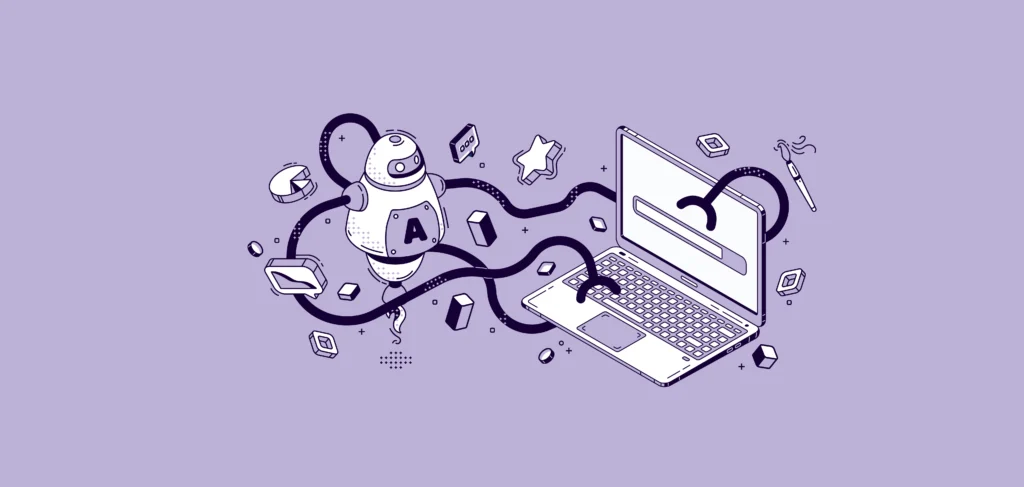The Future of Content Marketing: How Strategy and AI Are Changing the Game

In 2025, content marketing isn’t just about writing blogs and hoping someone clicks. It’s all about creating meaningful, personalized, and smart experiences that your audience actually enjoys. With AI taking over repetitive tasks and people expecting more than ever, content marketing has become the engine that powers real brand growth.
This blog explores how content marketing is changing the game by diving into new strategies, powerful tools, and the emerging trends defining the future.
From Static to Strategic: The Evolution of Content Marketing
Back in the day, content was mostly blogs and one-way communication. Fast forward to today, and it’s all about inbound marketing — creating helpful, value-packed content that attracts people naturally.
Inbound marketing and content are now inseparable. Now, brands are focusing on building real connections through videos, newsletters, webinars, and interactive content. It’s about publishing with purpose, not just for the sake of it. Did you know companies with blogs get 67% more monthly leads? And content marketing costs 62% less while generating 3x more leads than traditional methods.
Old vs New Content Marketing
| Traditional Approach | Modern Content Marketing |
| Push-based ads | Pull-based inbound content |
| One-size-fits-all messaging | Personalized, AI-driven content |
| Blog-centric | Multimedia & omnichannel |
| Voice | Community and user’s voice |
| Campaign-focused | Always-on content ecosystems |
Consumers today want content that feels like it was made just for them—not generic brand talk.
The Role of Content in Digital Marketing Today
The role of content in digital marketing has grown big time. It now fuels everything—SEO, social media, email marketing, paid ads, and even customer loyalty.
Great content improves:
- SEO performance by targeting keywords and user intent
- PPC campaigns through better Quality Scores and landing page relevance
- Social media reach with shareable and valuable assets
- Email engagement with tailored, lifecycle-specific messaging
- Customer Journey Orchestration guides prospects through awareness, consideration, and decision phases, creating seamless experiences that feel helpful rather than pushy.
It’s no longer a support function. It’s the strategy
Delivering the Right Content at the Right Time
Content marketing today transcends mere creation.It’s not just about what you say—it’s when and how you say it. Effective strategy hinges on precise delivery: aligning the message, format, and timing. Each phase of the customer’s path demands content that resonates with their needs and emotional state.
- Awareness Stage: Educational blogs, videos, infographics, social media content
- Consideration Stage: Case studies, webinars, product comparisons, newsletters
- Decision Stage: Testimonials, product demos, free trials, pricing pages
By strategically mapping content to these stages, brands guide users from discovery to decision—without hard-selling.
Combine Strategy + Tools for Maximum Impact
Good strategy is essential. But to really scale and win, you need the right tools too. Here’s a handy table:
Strategic Phase | Purpose/Function | Recommended Tools |
Planning & Strategy | Organize topics, plan calendars, do SEO research | Notion, Trello, Semrush, Ahrefs |
Content Creation | Write, design, and produce assets | ChatGPT, Jasper, Canva, Figma |
Distribution & Promotion | Schedule posts, send emails, push content live | Buffer, Hootsuite, Mailchimp, HubSpot |
Analytics & Optimization | Measure performance and user behavior | Google Analytics, Hotjar, HubSpot, SEMrush |
Smart tools + smart strategy = next-level content marketing.
The Power of User and Consumer-Generated Content.
People trust people. That’s why user-generated content (UGC) is such a game-changer. It’s real, raw, and relatable—way more powerful than polished ads. UGC is driven by distrust in traditional ads and the rise of social media. Consumers trust peer reviews and real experiences more than branded content, valuing authenticity. UGC shifts brand engagement from one-way communication to active listening, fostering credibility, deeper customer connections, and loyalty. It reflects evolving consumer behavior where authenticity is key, enabling brands to build trust and community.
Consumer generated content marketing includes:
- Instagram stories and unboxings
- YouTube reviews and vlogs
- TikTok trends featuring products
Brands like GoPro, Glossier, and Airbnb have mastered this. They’ve turned fans into marketers—and the results are epic.
The AI-Powered Content Revolution
AI is flipping the content game on its head. 90% of content marketers plan to use AI to support content marketing efforts in 2025 — up from 83.2% in 2024 and 64.7% in 2023, marking an explosive adoption rate that’s reshaping the entire industry.
AI in the marketing market is valued at 47.32 billion US dollars in 2025 and is expected to grow at a CAGR of 36.6% to reach 107.5 billion by 2028. This massive investment reflects how AI is transforming content marketing from reactive to predictive, enabling brands to anticipate customer needs before they’re even expressed.
The productivity gains are staggering. An astounding 83.82% of respondents reported increased productivity since adopting AI, allowing content teams to focus on strategy and creativity while AI handles time-consuming tasks like research, optimization, and initial draft creation.
How AI Is Transforming Content Marketing Operations
Modern content marketing teams are leveraging AI for multiple functions:
- Content Creation and Ideation: AI tools help generate topic ideas, outlines, and even complete drafts, accelerating the content production pipeline
- Personalization at Scale: Dynamic content adaptation based on user behavior and preferences
- Performance Optimization: Real-time analysis and adjustment of content performance metrics
- Predictive Analytics: Forecasting content trends and audience preferences before they peak
The key is balance—blending automation with human creativity and oversight.
The Future of Content Marketing: What’s Next?
The future of content marketing is immersive, intelligent, and interactive. Expect to see:
- Voice-search optimized content
- AR/VR brand experiences
- AI-human co-creation models
- Deeper community-building around content ecosystems
It’s about creating content that’s not just informative—but immersive, intuitive, and everywhere your audience is…
Future-Proofing Your Content Marketing Strategy
As content marketing continues changing the game, successful brands focus on several key areas:
- Sustainable Content Systems: Building repeatable processes that can scale without sacrificing quality or authenticity.
- Technology Integration: Leveraging AI and automation while maintaining the human elements that create genuine connections.
- Community Building: Moving beyond broadcasting to fostering two-way conversations and peer-to-peer interactions.
- Agile Adaptation: Remaining flexible enough to embrace new platforms, formats, and technologies as they emerge.
Conclusion
Content marketing has officially taken the lead in 2025. It’s no longer just a side hustle in your digital strategy—it’s the main event.
Whether you’re a startup or a scaling brand, now is the time to level up your approach. Because in the content game, relevance, authenticity, and innovation win.
If you want to win, you need more than just blogs and keywords. You need smart strategies, real connection, and tools that help you work smarter, not harder.
Ready to make your content work harder for your brand? Let’s talk strategy.
Frequently
Asked Questions!
How is AI specifically changing content marketing in 2025?
AI is revolutionizing content marketing through automated content creation, predictive analytics, personalization at scale, and productivity improvements. 90% of content marketers now use AI tools, with 83.82% reporting increased productivity since adoption.
Why is user-generated content becoming so important?
Marketers favor user-generated content over traditional branded content. This preference stems from user-generated content’s ability to offer genuine social proof, foster trust through recommendations from peers, and cultivate community interaction in a way that conventional advertising is unable to achieve.
What role does content play in modern inbound marketing?
Content serves as the foundation of inbound marketing by attracting organic traffic, nurturing prospects through the sales funnel, and building long-term customer relationships. Companies with active content strategies generate 67% more leads monthly than those without.
How should businesses measure content marketing success in 2025?
To effectively gauge content marketing success in 2025, businesses should shift their metrics. Instead of solely tracking views and shares, prioritize revenue attribution, customer lifetime value, engagement quality, and long-term brand building. This modern approach leverages advanced analytics to directly link content consumption to tangible business results.





